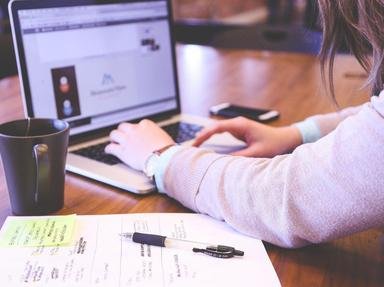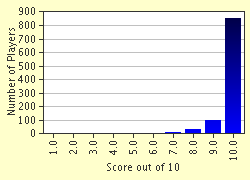Quiz Answer Key and Fun Facts
1. Often you will encounter the acronym "APR" on your credit card bill. What does it mean?
2. When paying in a shop with a debit or credit card, you will normally be expected to place your card in a slot in a machine and enter your PIN on a keypad. What do the letters PIN stand for?
3. The organization that knows all about your buying, borrowing and payment history and issues reports to your creditors is called ___________.
4. The bank uses this term to describe the payment of bills by direct drafts from your checking account.
5. Help! Another acronym! LOC stands for Line of Credit, a special account that's attached to your checking account. If you have big expenses one month (eg, high utility bills in winter, car repair expenses) the line of credit will place money in your checking account to tide you over. If you don't have this account, your checking account may become....
6. You have been really busy and under a lot of stress. You haven't gotten around to balancing your checking account for awhile. You write a check at the hardware store for contact paper, a new garden hose and a trampoline. Ten days later, you receive a letter from the store stating that you still owe them for the merchandise plus a fine of $25, and they want you to come back and pay in cash. What has happened?
7. Some financial counselors say that this important monthly payment should not exceed 1/4 to 1/3 of a person's monthly income.
8. You have questions about your monthly statement so you call your loan company, bank or credit card company. You are shuffled from one department to another and the phone menu is endless. You're running out of patience. What shortcut will often take you directly to customer service?
9. There are three factors to consider when making a major purchase (eg, a home or car loan). These related factors will determine how much you will ultimately pay for the item. They are...
10. What does it mean when a company asks you to "remit the payment" by the due date?
Source: Author
duracell
This quiz was reviewed by FunTrivia editor
LadyCaitriona before going online.
Any errors found in FunTrivia content are routinely corrected through our feedback system.

